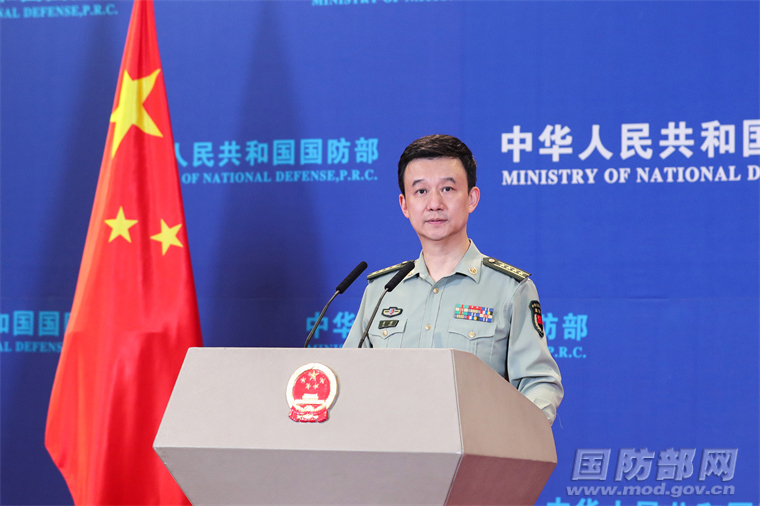'Groundless accusations' rebuked


China's Ministry of National Defense hits back at Japan's misleading white paper
The Ministry of National Defense made stern representations to Japan after the latter released a new defense white paper that made groundless accusations against China.
"The content related to China in the paper ignored facts and was full of bias," Wu Qian, a spokesman for the ministry, said on Tuesday, criticizing Japan for hyping up the "China threat" theory, and for pointing fingers at China's army development and normal military activities.
"The Chinese side has expressed strong dissatisfaction and firm opposition to the paper, which wantonly interferes in China's internal affairs and intensifies regional tensions," he said in a statement.
Wu made the remarks after the paper was released on Friday and approved by Japanese Prime Minister Fumio Kishida's cabinet. It contained abundant content related to Taiwan and accused China of attempting to change the status quo unilaterally in the East and South China seas.
"The Taiwan question is purely China's internal affair, which tolerates no foreign interference," said Wu, pointing out that compatriots across the Taiwan Straits would never forget that Japan "forcibly seized Taiwan by means of a war of aggression".
The spokesman criticized Japan for violating its solemn commitment to China regarding the Taiwan question by releasing the white paper, warning that this "completely wrong and very dangerous" move undermines the political foundation of Sino-Japanese relations.
Zhu Fenglian, a spokeswoman for the Taiwan Affairs Office of the State Council, said that Japan has hyped up the so-called military threats posed to Taiwan by the mainland in the white paper, completely disregarding the fact that Taiwan is a part of China.
Zhu noted that, in the 50 years of its colonial rule over Taiwan, Japan committed heinous crimes and caused misery to Taiwan compatriots.
She said Japan ought to reflect on its past misdeeds, abide by the four political documents between China and Japan, and handle the Taiwan question with discretion.
Zhong Houtao, a Taiwan affairs researcher for the Chinese Academy of Social Sciences, said the reasons why Japan has highlighted the Taiwan question is based on both history and reality.
"On one hand, Japan still has a special complex with Taiwan, which was under its colonial rule for a half-century, making Japan still regard the island within its sphere of influence," he said.
"On the other hand, Japan is attempting to gain more sense of security as a neighboring country of China by increasing its presence in the surrounding regions of China amid the rising China-US tensions," the researcher said.
"That would make the US put more strategic focus in the Asia Pacific, which would benefit Japan's security in the region."
Wu Qian, the spokesman, warned against the Japanese defense policies by making a comparison between China and Japan, noting that China is firmly committed to the path of peaceful development.
"However, Japan, instead of reflecting on and drawing lessons from history, is blindly making accusations against China, plotting to amend its pacifist constitution and substantially increase defense expenditures," he said, adding that the island country is developing offensive forces and attempting to break through the post-war international order.
"This has aroused serious concern and high vigilance from the international community, including China," Wu warned, urging the Japanese side to face up to and reflect on its history of aggression and to "stop confusing the world by pretending to be a victim".
Foreign Ministry spokesman Wang Wenbin said on Friday that Japan should "immediately stop the erroneous practice of hyping up security threats in the neighborhood to justify its military buildup".
Noting that Japan publicly stated in the paper that it would further increase defense spending to develop its so-called counterstrike capabilities, he said, "It is worrying that Japan is deviating from the path of pacifism and an exclusively defense-oriented policy".





































